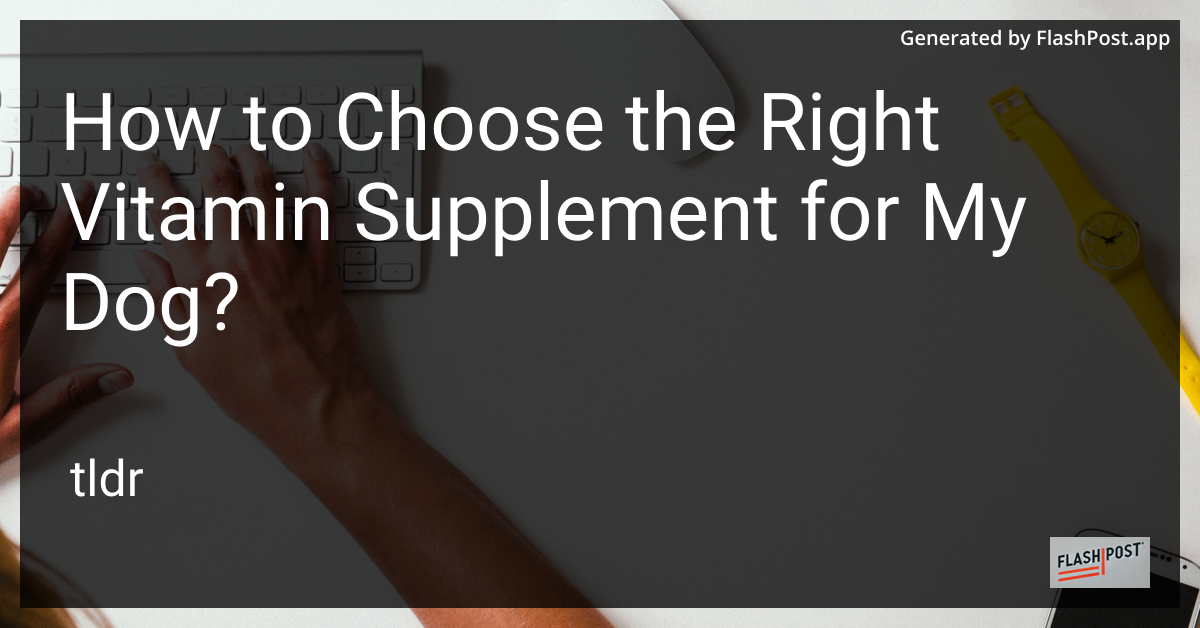
Ensuring your furry friend gets the right vitamins is an essential part of maintaining their health and well-being. With countless options available, choosing the appropriate vitamin supplement for your dog can be overwhelming. Here is a comprehensive guide to help you make the best decision for your pet.
Understand Your Dog's Needs
Every dog is unique, and their nutritional requirements can vary based on age, breed, size, health status, and activity level. Before introducing any supplement, consider consulting with your veterinarian to evaluate what specific nutrients your dog may need. This ensures that you are not providing unnecessary supplements or exceeding recommended levels.
Consider Age and Life Stage
Much like humans, a dog's nutritional needs change throughout their life. Puppies, adult dogs, and seniors have different dietary requirements:
- Puppies need more calcium and phosphorus for bone development.
- Adult dogs require balanced nutrition to maintain health and energy.
- Senior dogs might benefit from antioxidants and omega fatty acids for joint support and immunity.
Choose High-Quality Supplements
When selecting a vitamin supplement, quality is key. Look for products that have been tested and certified by third-party organizations. Check for:
- Natural Ingredients: Aim for supplements made from whole, natural food sources.
- No Fillers or Additives: Avoid products with artificial colors, flavors, or preservatives.
- Reputable Brands: Consider brands with a proven history of safety and efficacy.
Form of Supplement
Vitamin supplements come in various forms, including pills, powders, liquids, and treats. Choose the format that is most convenient for both you and your dog. Some dogs might prefer flavored chews, while others might need their supplements mixed into their food.
Focus on Key Vitamins and Minerals
Some essential vitamins and minerals to consider include:
- Omega-3 Fatty Acids: Support skin, coat, and joint health.
- Vitamin C and E: Enhance the immune system and act as antioxidants.
- Glucosamine and Chondroitin: Promote joint health, especially in older dogs.
- Probiotics: Improve digestive health.
Monitor for Side Effects
Once you have chosen a supplement, monitor your dog closely for any changes or side effects. Signs of adverse reactions can include gastrointestinal disturbances, allergies, or behavioral changes. If any side effects appear, discontinue use and consult your veterinarian.
Final Thoughts
Selecting the right vitamin supplement can be a crucial step in ensuring your dog's wellness. Prioritize understanding your dog's specific needs, choose high-quality products, and consult your veterinarian for personalized advice. By doing so, you can help your furry friend lead a healthy and happy life.
For other pet-related concerns, you may want to learn about the dog GPS tracker smartphone requirement, explore tips to reduce dog shedding in 2025, or catch up on the top dog stroller discounts available.
By incorporating these elements, you're well on your way to providing your dog with the nutrition they need while maintaining their overall health. Happy supplementing!